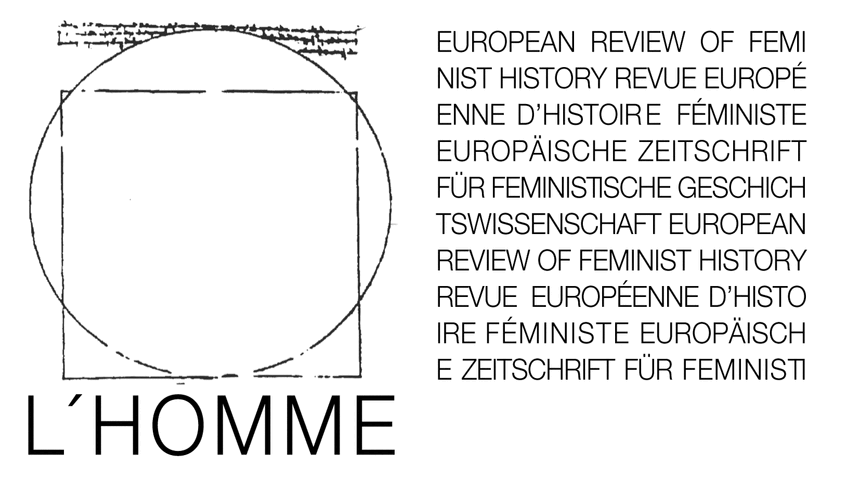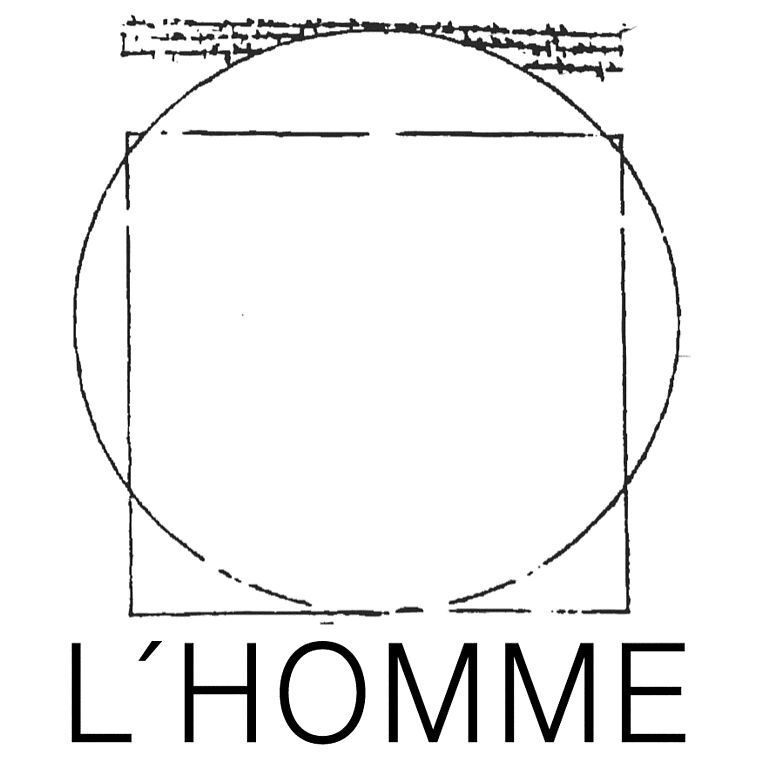
L’Homme. European Journal for Feminist History (L'Homme. Z. F. G.) has been published as the first German-language journal for feminist historiography since 1990. New research findings and current discussions in women's and gender history are discussed in theme issues — for example on the body, homework, citizenship, happiness, soldiers, creating knowledge, marriage (hi)stories, emotions, whiteness, age(ing) and servants, but also on markets, economies and names, visual cultures and romantic love, war including 1914/18, women’s suffrage, pain. The time periods covered largely range from the Middle Ages to the recent past, sometimes including antiquity. The European perspective, which has been consistently adopted since the journal was founded, has recently been extended to include more issues on global history.
The contributions are added to by articles on theoretical discussions and the latest developments in gender and queer studies, as well as research reports. The »News and Commentary« section of the journal sheds light on current political and social debates, such as sexual violence, the gender pay gap or the threat to women’s rights posed by illiberal political movements. Reviews relate to the topic of the issue and also take into account important new publications unrelated to the topic. »L'Homme Extra« offers texts outside the theme of the issue, while »Forum« reports on and sometimes also discusses research fields in women’s and gender history. Other sections that appear irregularly are »In Dialogue« and »From the Archives«.
L'Homme. Z. F. G. sees itself as an interface between different linguistic and academic cultures and takes this into account by focusing on a variety of topics and regional references. In addition to articles in German, we also publish contributions in English and translations from other languages — such as Italian, French and Polish — which is very important to us.
All contributions to the journal and the connected book series »L’Homme Schriften. Reihe zur Feministischen Geschichtswissenschaft« are anonymously peer reviewed according to a strictly regulated procedure.
Usually, one English article from each issue of L'Homme. Z. F. G. is also published in the online magazine Eurozine, where it is freely accessible (open access). Articles published in L'Homme. Z. F. G. are protected for one year, after which they may be published in other media or made freely accessible (but not in the publisher's layout). If authors wish to make their contributions open access immediately after publication, this is possible for a fixed fee to the publisher.
The table of contents and the editorial of each issue are available on the website. Digital subscriptions of the journal are also available.
The volumes from 1990 up to and including 2015 are freely available as digital copies at lhomme-archiv.univie.ac.at/hefte.
The journal is accompanied by the book series on Feminist History »L'Homme Schriften« (until 2015 also: L'Homme Archiv. Quellen zur Feministischen Geschichtswissenschaft — Sources on Feminist History).
The importance of L’Homme. Z. F. G. for European women's and gender history and gender studies was underlined in 2011 when the journal was listed in the highest possible category (INT1) of the European Reference Index Humanities (ERIH) (Gender Studies list). ERIH PLUS (European Reference Index for the Humanities and Social Sciences) evaluated all academic journals listed by ERIH (2008-2012) on the basis of new criteria, and L’Homme was again included in the list in 2015.
Since 2013, L’Homme has been available as a digital subscription in addition to the print edition.
Editors
Ingrid Bauer, Vienna and Salzburg | Anna Becker, Aarhus
Mineke Bosch, Groningen | Bożena Chołuj, Warsaw
Maria Fritsche, Trondheim | Christa Hämmerle, Vienna
Gabriella Hauch, Vienna | Almut Höfert, Oldenburg
Anelia Kassabova, Sofia | Claudia Kraft, Vienna
Ulrike Krampl, Tours | Christina Lutter, Vienna
Sandra Maß, Bochum | Claudia Opitz, Basel
Kristina Schulz, Neuchâtel | Xenia von Tippelskirch, Frankfurt am Main
Heidrun Zettelbauer, Graz
Scientific Board of „L’Homme. Z. F. G.“:
Angiolina Arru/Rome, Sofia Boesch-Gajano/Rome, Susanna Burghartz/Basel, Kathleen Canning/Ann Arbor, Jane Caplan/Oxford, Krassimira Daskalova/Sofia, Natalie Zemon Davis/Toronto, Barbara Duden/Hanover, Ayşe Durakbaşa/Istanbul, Ute Frevert/Berlin, Ute Gerhard/Bremen, Angela Groppi/Rome, Francisca de Haan/Budapest, Hanna Hacker/Vienna, Karen Hagemann/Chapel Hill, Daniela Hammer-Tugendhat/Vienna, Karin Hausen/Berlin, Waltraud Heindl/Vienna, Dagmar Herzog/New York, Claudia Honegger/Bern, Isabel Hull/Ithaca, Marion Kaplan/New York, Christiane Klapisch-Zuber/Paris, Gudrun-Axeli Knapp/Hanover, Daniela Koleva/Sofia, Margareth Lanzinger/Vienna, Brigitte Mazohl/Innsbruck, Hans Medick/Göttingen, Michael Mitterauer/Vienna, Herta Nagl-Docekal/Vienna, Kirsti Niskanen/Stockholm, Helga Nowotny/Vienna, Karen Offen/Stanford, Michelle Perrot/Paris, Gianna Pomata/Bologna, Helmut Puff/Ann Arbor, Florence Rochefort/Paris, Lyndal Roper/Oxford, Raffaela Sarti/Urbino, Wolfgang Schmale/Vienna, Gabriela Signori/Konstanz, Brigitte Studer/Bern, Marja van Tilburg/Groningen, Maria Todorova/Urbana-Champaign, Claudia Ulbrich/Berlin, Kaat Wils/Leuven
